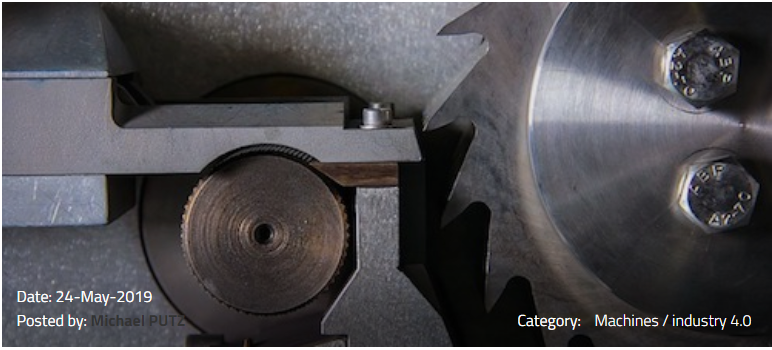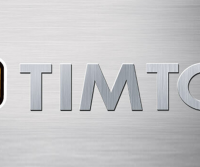
New technologies such as Industry 4.0 and digital platforms also open up completely new possibilities for mechanical engineering. Because both increase the efficiency of existing systems many times over, machine designers see their business threatened. In this blog post you can read how digitization is disrupting the engineering industry and what the industry can learn from agriculture.
Digitalization and networking are already changing the production of goods and devices of all kinds today and will do so much more in the future. Intelligent machine parks and robots that are able to communicate with each other control and monitor production processes autonomously. Human beings are (almost) no longer needed in machine halls. One might think that a golden era is dawning for mechanical engineering, because the need for systems that can replace the cost factor of human labor is highly welcome.
Established business models of the packaging industry under threat
However, digitalization also has a downside for machine builders that promises anything but rosy times. Many industry executives believe that the start of a disruption is imminent and fear that their established business model will fail. The packaging industry illustrates the problem facing machine builders:
Fast Moving Conumer Goods (FMCG) in particular has a large number of packages that are almost identical apart from the imprint - such as yoghurt pots. The packaging industry's business here is to equip dairies with machines that fill their products directly. For the business model of any dairy such a machine is absolutely necessary - although it only produces the shell of the actual product. Because yoghurt pots are very similar or technically identical, the packaging industry equips the various dairies with similar systems.
Utilization problems cause effort and costs
A packaging machine that is not working at 100 percent capacity causes costs for every dairy. For a single company, however, it is impossible to always push the production capacity of its own packaging line to the limit. The quantity produced depends on many other factors: For example, the price of milk, the quantity of raw materials delivered, the capacity of the remaining machinery and sales. Every dairy therefore faces the problem of having to operate a plant that is absolutely necessary for its own production without being able to make optimum use of it. Or, the amount of yoghurt produced is too large to be filled by the packaging plant. This then turns out to be a bottleneck that throttles the output of the entire plant and thus indirectly causes costs because the otherwise possible sales potential is not exploited.
Digital platforms trade with capacities
This dilemma can be solved with digital tools. Because an intelligent networked packaging system knows its capacity utilization. A dairy company can also make this information available to other partners. For example, operators of digital platforms who offer information about unused capacities and market them. On such portals, a dairy can see which other company in its immediate vicinity has a similar packaging plant and what its capacity utilization is like. If an over- or under demand of the own packaging line threatens, a dairy company can either use the available capacities of another company in the vicinity or make its own resources available to another company. Digital trading platforms and the networking of machines thus make it possible to make optimum use of existing capacities. For the packaging industry, this means that dairies will in future be able to handle the same output with fewer machines.
Disruption leads to a win-win situation
The fact that digitization helps to satisfy an existing need with much fewer resources of comparable or even better quality can be seen in tourism or in the transport sector. AirBnB does nothing other than make temporarily unused living space available on the market at extremely attractive conditions. Platforms such as Drivy allow car owners to earn money with it by making it available to others near them. The pattern is always the same: Someone has a resource that he absolutely needs for himself or his business, but cannot fully utilize. Networking and digital platforms now make it possible to market these unused capacities and create a real win-win situation. The customer benefits from being able to use something at relatively favorable conditions that he does not own himself. The provider, on the other hand, generates income from the temporary transfer that is hardly offset by costs. Because the fixed costs for his property are incurred anyway.
Agriculture is analogous branch for packaging industry
But there is also an industry that has solved the dilemma of absolutely needing expensive machines, but very rarely really using them, without digitization. For the packaging industry, this economic sector serves almost perfectly as an analogue industry, even though the public perceives it as less innovation-friendly and even backward.
Agriculture satisfies people's most important basic needs. In order to avoid famines and feed the growing population, this industry has been forced to constantly increase its productivity. In order to achieve this, the agricultural sector uses machines that are becoming increasingly complex and therefore more expensive. In concrete terms, no farmer today can afford to harvest grain with scythes, sickles and flails. Even small part-time farmers use combine harvesters. But many farms cannot afford these and the many other machines that are necessary for the rearing, care and harvesting of food alone.
Machine pooling in the agricultural sector
Agriculture has solved this problem by setting up machinery rings: each member can borrow the equipment they need from a jointly financed pool. The supply of such machine rings is no longer limited to technical equipment. Today, smaller companies in particular rent the specialist personnel needed to operate the increasingly complex and at the same time more efficient machines at the same time. The benefits are clear: a sideline company can outsource a certain part of its tasks from the best specialists and with the best machines for a part of its income, thus achieving the efficiency of a large company. Digitalization and networking (smart farming) further facilitate the outsourcing of activities that can only be carried out in an economically viable manner using expensive technology. Why should a farmer want to afford his own tractor if it drives autonomously and, for example, ploughs around his neighbor's field without human intervention?
Conclusio: Why digitalization leads to a disruption of mechanical engineering
Industry 4.0 must make the heart of every engineer beat faster. Because digitization and networking lead to unprecedented technical possibilities that are not even thought of today. Digital tools can enormously increase the efficiency of new and existing plants. Digitalization thus ensures sustainability, to which each individual will be increasingly forced in the future. If the same or even higher output is possible with fewer systems, machine builders will have to fear for their current business model. For them, digitization is accompanied by a loss of sales. The industry is therefore on the verge of disruption. How their customers will act in the near future, however, is already clearly visible today in agriculture: on the one hand, developing innovations is becoming increasingly important. On the other hand, it is less and less a question of selling them, but rather of marketing the service provided by the systems through completely new business models.
Source
Еще больше новостей |




